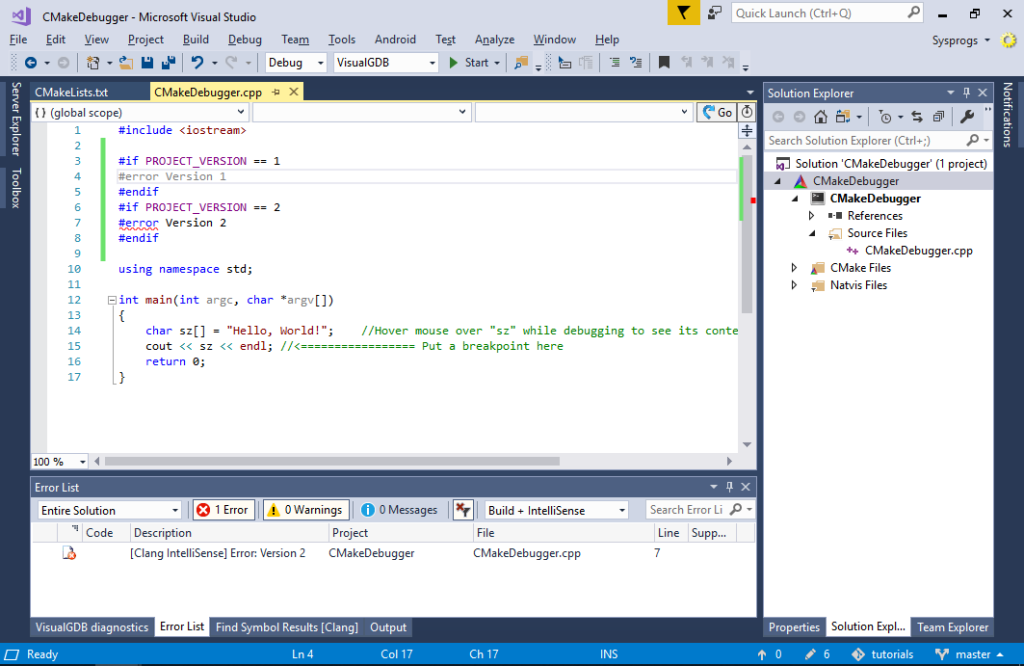

You can set these when building if you want.
This feature is often used by package management software, in conjunction with the already mentioned CC, CXX, CUDACXX, and CUDAHOSTCXX environment variables. For example, if target file name is base.pdb, the base name is base.
CMAKE DEBUG TARGET FULL
You canĪdopting a convention from Linux, all build types append compiler flags from the environment variables CFLAGS, CXXFLAGS, CUDAFLAGS, and LDFLAGS ( full list). Note that CMake defaults to an “empty” build type, which is neither optimized nor debug. # If there is a -lm, let's use it if (MATH_LIBRARY ) target_link_libraries (simple_lib PUBLIC $ ) endif () Optimized release build, or MinSizeRel for a minimum size release (which I’ve never used). RelWithDebInfo for a release build with some extra debug info. You can run CMake with CMAKE_BUILD_TYPE=Debug for full debugging, or To run a C++ debugger, you need to set several flags in your build. Expected: Run CMake Configuration The result: cmake Configuring done cmake CMake Deprecation Warning: cmake The cmake-server(7) is deprecated.
CMAKE DEBUG TARGET CODE
You can print extra find call information during the cmake run to standard error by adding -debug-find (CMake 3.17+).Īlternatively, CMAKE_FIND_DEBUG_MODE can be set around sections of your CMakeLists.txt to limit debug printing to a specific region. To debug an CMake application, build the project using the debug build configuration that has the toolchain settings to include complete debug information in. Can’t make the Visual Studio Code debugger work. More details on this will be shown in the next section.įor now, let’s watch where CMake searches for find_. trace-source=CMakeLists.txt with -trace? Find call informationĬMake scripts can search for dependent libraries, executables and more.

What is the difference? How about replacing


 0 kommentar(er)
0 kommentar(er)
